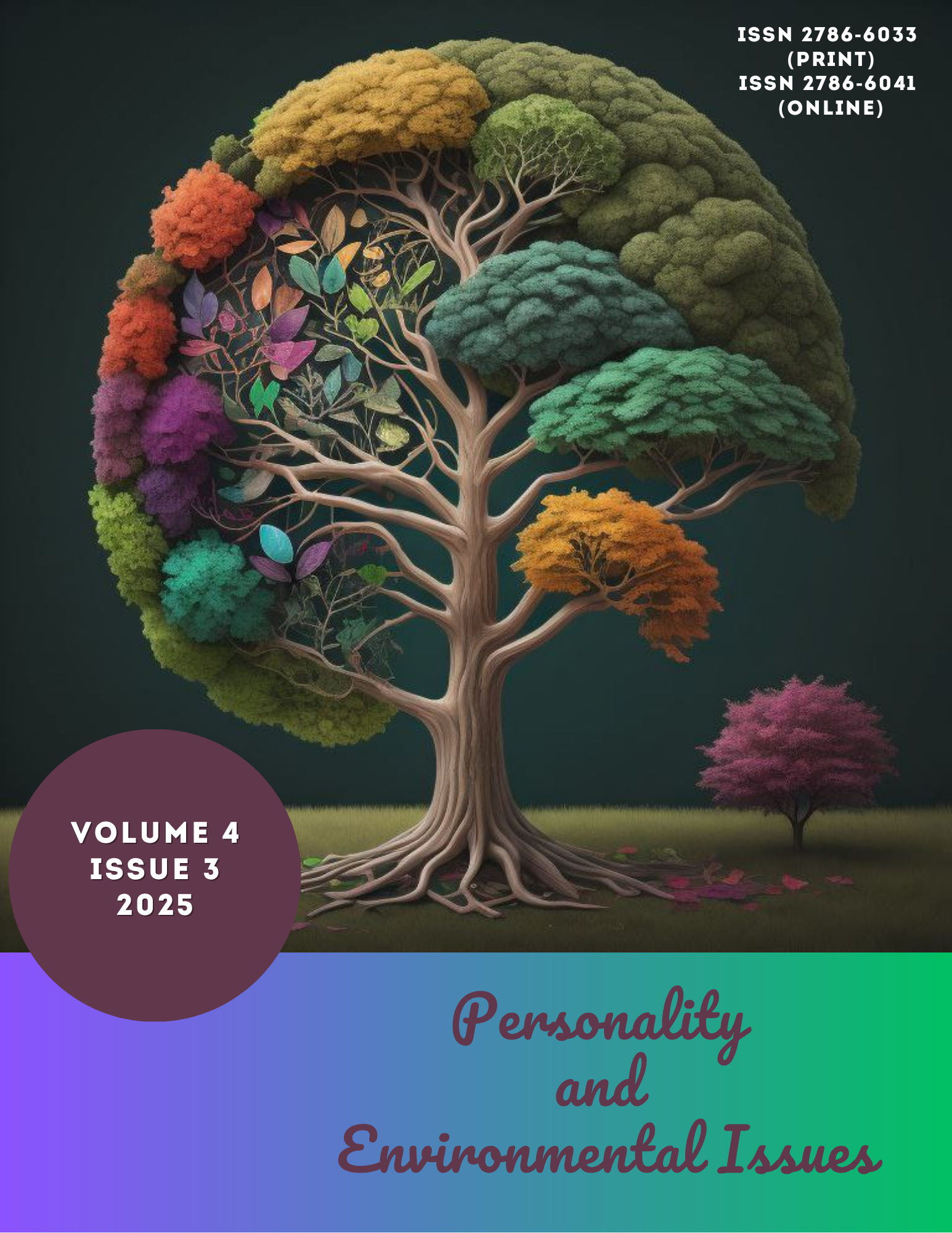Abstract
A theoretical analysis of modern approaches in psychological literature to the concept of interpersonal interaction among adolescents with musculoskeletal disorders has been carried out. This paper examines the specific features of interpersonal interaction in children with cerebral palsy and the relevant forms of social work. The practical value of social interaction has been highlighted, as well as the impact of martial law on the interaction of this category of children with their environment. Understanding the differences between children with disabilities and their peers helps enhance the support and assistance provided by society. The growing importance of an inclusive environment is emphasized each year due to the increasing number of people with disabilities, many of whom lack access to the same benefits as others due to their physical limitations. Under martial law in Ukraine, this issue has become even more pressing, as many individuals are now acquiring disabilities due to injuries, while the necessary conditions for creating an inclusive environment are often unavailable due to various circumstances. Therefore, in addition to the basic methods used by social work professionals, new ones are emerging that can function regardless of the client’s location.
A system of methods and psychodiagnostic techniques was selected to study interpersonal interaction among adolescents with musculoskeletal disorders in an inclusive environment. The results indicate an adaptive pattern in the development of interpersonal relationships among adolescents with cerebral palsy. However, it is important to consider that a significant percentage of respondents demonstrate a tendency toward maladaptive behavior. The study found that almost all children have experienced the negative effects of war, which have affected all areas of life: health, education, leisure, family, and friendships. Nonetheless, interpersonal interaction with close family and immediate surroundings is one of the areas that has undergone the greatest changes.
Based on the research results, a social project was developed for adolescents with musculoskeletal disorders, incorporating art therapy methods and sociodrama. The data obtained provided important insights into the needs, problems, and expectations of this vulnerable group of young people, which allowed for the identification of key directions and measures for implementation in the social project.
References
Azarskyi, Sh. M. (2002). Dytyachyi tserebralnyi paralich, nadbana slaborozumovist ta pedahohichna zapushchenist (sotsialno-reabilitatsiini aspekty dlia profilnykh khvorykh u suspilstvi) [Cerebral palsy, acquired mild intellectual disability, and pedagogical neglect (social and rehabilitation aspects for patients in society)]. Khmelnytskyi: Podillia.
Soroka, O. V. (2008). Art-terapiia v sotsialnii sferi: Kurs lektsii [Art therapy in the social sphere: A course of lectures]. Ternopil: Ternopil National Pedagogical University.
Babiak, O. O. (2011). Psykholohichni osoblyvosti mizhosobystisnykh stosunkiv u pidlitkiv iz ZPR [Psychological features of interpersonal relationships in adolescents with developmental delay]. In V. V. Zasenko & A. A. Kolupaieva (Eds.), Osvita osib z osoblyvymy potrebamy: shliakhy rozbudovy: Naukovo-metodychnyi zbirnyk [Education of persons with special needs: Ways of development: Scientific-methodical collection] (Vol. 2, pp. 6–15). Kyiv.
Ipolitova, M. V., Babenkova, R. D., & Mastiukova, Ye. M. (2003). Vykhovannia ditei z DTsP [Upbringing of children with cerebral palsy]. Kyiv.
Kovalenko, A. B. (2010). Psykholohiia mizhosobystisnoho vzaiemorozuminnia [Psychology of interpersonal understanding]. Kyiv: Taras Shevchenko National University of Kyiv.
Kolupaieva, A. A. (2009). Inkliuzyvna osvita: realii ta perspektyvy: Monohrafiia [Inclusive education: Realities and perspectives: A monograph]. Kyiv: Sammit-Knyha.
Nestoiashcha, K. (n.d.). Do pytannia inkliuzyvnoi osvity v Ukraini [On the issue of inclusive education in Ukraine]. Retrieved from http://osvita.ua/school/inclusive_education/29475/
Sytnik, S. V. (2016). Indyvidualno-psykholohichni osoblyvosti mizhosobystisnoi vzaiemodii osobystosti [Individual-psychological characteristics of interpersonal interaction of personality]. In Adaptatsiinyi potentsial osobystosti v suchasnomu sotsialnomu seredovyshchi: Proceedings of the All-Ukrainian Scientific-Practical Conference of Young Scientists and Students (pp. 176–180). Odesa.
Ponomarova, E. E. (2014). Perspektyvy vykorystannia muzykoterapii v ozdorovlenni ditei z DTsP [Prospects for the use of music therapy in the rehabilitation of children with cerebral palsy]. In Pedahohichni tekhnolohii formuvannia kultury zdorovia osobystosti: Proceedings of the All-Ukrainian Scientific-Practical Conference of Young Scientists and Students (pp. 82–85). Chernihiv: Chernihiv National Pedagogical University.
Sytnik, S. V. (2016). Osoblyvosti mizhosobystisnoi vzaiemodii ditei v period rekreatsii [Features of interpersonal interaction of children during recreation]. Nauka i osvita [Science and Education], (9), 148–153.
Sytnik, S. V. (2020). Rozrobka metodyky otsinky osobystisnykh komponentiv mizhosobystisnoi vzaiemodii [Development of a method for assessing personal components of interpersonal interaction]. Teoriia i praktyka suchasnoi psykholohii [Theory and Practice of Modern Psychology], 3(1), 111–115. Zaporizhzhia.
Kapska, A. Y. (Ed.). (2003). Sotsialno-pedahohichna robota z ditmy ta moloddiu z funktsionalnymy obmezhenniamy: Navchalno-metodychnyi posibnyk dlia sotsialnykh pratsivnykiv ta pedahohiv [Socio-pedagogical work with children and youth with functional limitations: A teaching guide for social workers and teachers]. Kyiv: DCSSM.
Chukhrii, I. (2019). Osoblyvosti sotsialnoi adaptatsii molodi z porushenniamy funktsii oporno-rukhovoho aparatu vnaslidok dyzontohenezu [Features of social adaptation of youth with musculoskeletal disorders due to dysontogenesis]. European Humanities Studies: State and Society / Europejskie Studia Humanistyczne: Państwo i Społeczeństwo, 1(I), 261–274. Poland–Ukraine.
Chukhrii, I. V. (2020). Psykholohichni mekhanizmy sotsialnoi adaptatsii molodi z porushenniamy funktsii oporno-rukhovoho aparatu [Psychological mechanisms of social adaptation of youth with musculoskeletal disorders]. In V. V. Nechyporenko (Ed.), Aktualni pytannia korektsiinoi osvity (pedahohichni nauky): Zbirnyk naukovykh prats [Topical issues of correctional education (pedagogical sciences): Collection of scientific works] (Vol. 15, pp. 220–230). Kamianets-Podilskyi: Pankova.
Chukhrii, I. V. (2019). Sotsialna adaptatsiia molodi z porushenniamy funktsii oporno-rukhovoho aparatu [Social adaptation of youth with musculoskeletal disorders]. In Aktualni problemy psykholohii: Zbirnyk naukovykh prats Instytutu psykholohii im. H. S. Kostiuka NAPN Ukrainy. Ekolohichna psykholohiia [Current issues of psychology: Collected works of the H. S. Kostiuk Institute of Psychology of the National Academy of Pedagogical Sciences of Ukraine. Ecological psychology] (Vol. 48, Issue VII, pp. 236–446). Kyiv: H. S. Kostiuk Institute of Psychology.
European Humanities Studies: State and Society / Europejskie Studia Humanistyczne: Państwo i Społeczeństwo. (2019). Poland–Ukraine, 1(I), 261–274.
Johnson, T. L., Chin, E. M., & Hoon, A. H. (2019). Cerebral palsy. In M. L. Batshaw, N. J. Roizen, & L. Pellegrino (Eds.), Children with disabilities (8th ed., pp. 423–456). Baltimore: Paul Brookes.

This work is licensed under a Creative Commons Attribution 4.0 International License.
Copyright (c) 2025 Оксана Фуштей, Ірина Саранча, Наталія Франко





